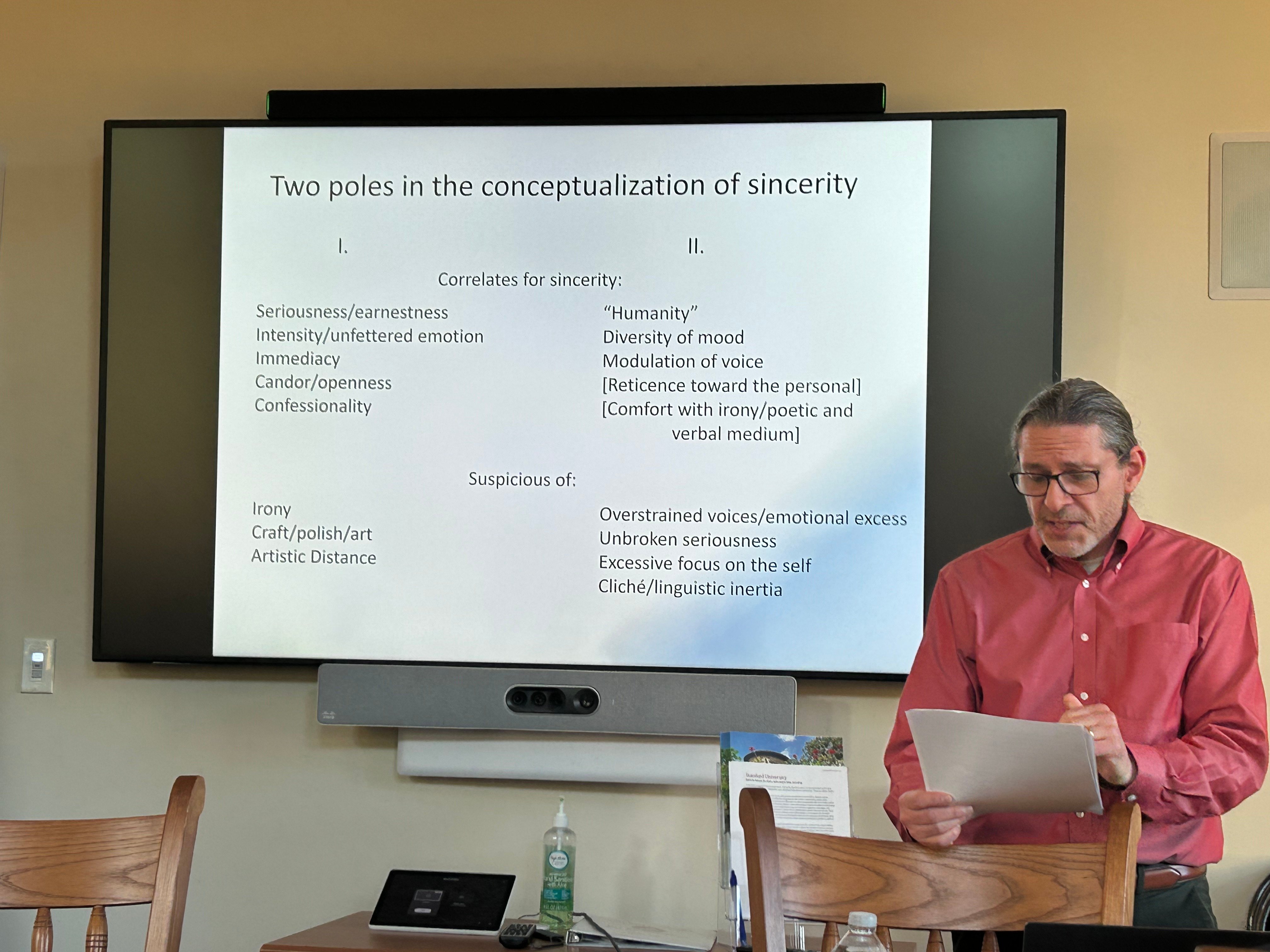Stuart H. Goldberg, a professor of Russian at the Georgia Institute of Technology spoke on Wednesday about the process of poets signaling, and readers interpreting, the authenticity of a work at the Stanford department of Slavic languages and literatures colloquium.
The event was held in a small room in Pigott Hall, with attendees including department of Slavic languages and literatures graduate students and faculty members.
Ostap Kin, a second-year Ph.D. student in the department, introduced Goldberg. A specialist on Russian literature and culture, Goldberg’s research on sincerity in poetry was published in his 2013 book, “An Indwelling Voice.” As such, the presentation was a virtually word-for-word reading of the book’s introduction.
According to Goldberg, the inspiration for his examination of sincerity stemmed from the research for his previous book, “Mandelstam, Blok and the Boundaries of Mythopoetic Symbolism,” published in 2011. After discovering poets Osip Mandelstam and Alexander Blok were critical of each other’s poetry, Goldberg theorized the gap lay in how the pair interpreted sincerity in each other’s poetry. This took Goldberg on a journey to answer the question: “To what extent was this a personal or a generational question?”
According to Goldberg, sincerity is an important topic because “many disagreements of literary taste are actually, in no small part, disagreements about sincerity.” The way sincerity is understood is dependent on the audience’s context and their experience — the idea of what constitutes sincerity is constantly evolving.
Goldberg identified two poles of how sincerity is conceptualized. The first pole represents a more familiar and straightforward version of sincerity, where writers express themselves fervently and value earnestness and a confessional tone. Meanwhile, the second pole often uses irony, stays away from constant intensity and prioritizes “humanity rather than seriousness.”
According to Goldberg, the writer Alexander Pushkin is an example of the second, less often named pole, as evidenced by his use of wit and humor in his work. The two poles can often be oppositional: proponents of the first pole may see the second as “aristocratic or aloof,” while those who favor the second may view the first as “histrionic or staged.”
However, the two poles do not guarantee sincerity, said Goldberg. Other indirect literary indicators also imply authenticity without outright stating it.
Goldberg raised the poem “Дай нищему на опохмелку денег” (translated by Goldberg as “give the beggar a buck for his hangover”), by 20th century Russian poet Boris Ryzhy, as an example of the first pole. In it, techniques such as self-deprecation and metric rhythm creating the impression of conversational speech cultivate the impression that the speaker is laying themself bare on the page. The intensity created hence presents an effect of “reckless candor,” Goldberg said.
The presentation was followed by a question and answer session. In response to a question about when poetry’s sincerity is assessed, Goldberg clarified that evaluating resonance does not have to happen in retrospect, after the poet’s larger body of work has been established.
“As soon as the poem exists, the poet themself is reading it and… reflecting on it themselves,” he said.
Department of Slavic languages and literatures faculty member Gabriella Safran inquired after the connection between sincerity and political speech. “ I’m wondering about the ways that sincerity is evaluated in political discourse at given moments,” Safran said.
According to Goldberg, his framework for analyzing sincerity could be applied to politics. For example, President Donald Trump’s trademark “vehement speech” is an example of a marker that audiences may perceive as sincerity.
“Trump’s speech [evokes] this image of speaking without a filter,” he said.
The lecture was well received by many in the audience.
“I was really struck by [the talk], especially the two poles of sincerity,” said Dominick Lawton, professor of Slavic languages and literatures. “I’ll be thinking about it for a while.”
